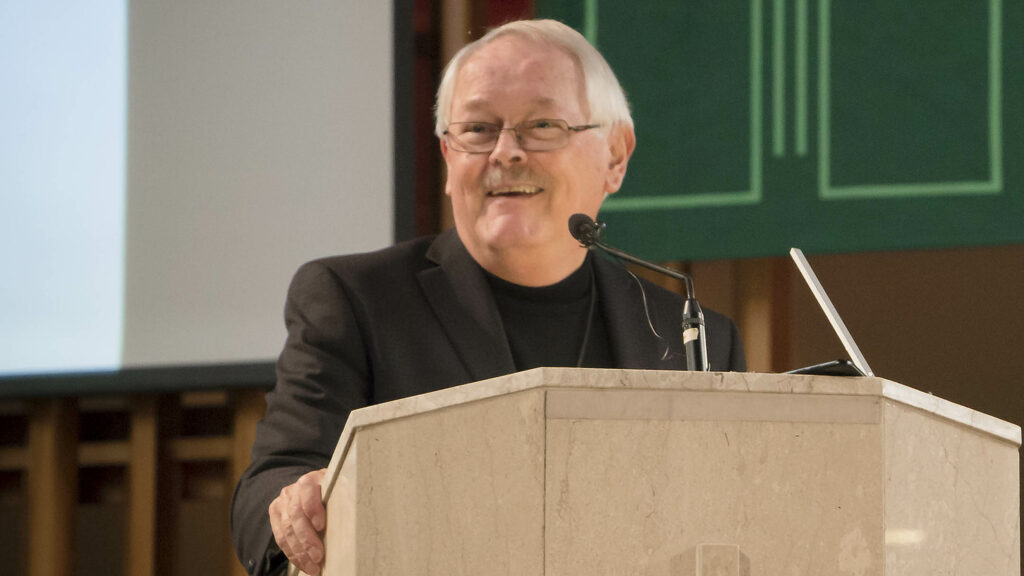Not everything can be fixed or cured, but it should be named properly. Richard Rohr said that. James Hillman suggests something similar when he wrote that a symptom suffers most when it doesn’t know where it belongs.
Where does our present moment belong vis-à-vis our faith in God and the relevance of our churches? Are we post-Christian? Are we witnessing the death of God and our churches? Or, is our faith being purified by the very criticisms levelled against it and, despite a massive decline in church attendance, aren’t the churches making genuine moral progress on issues like racism, sexism, and social justice in general? Are we dying or maturing? How do we name our present moment?
By way of an answer, I would like simply to offer a series of “metaphors” gleaned from various commentators that attempt a naming. Some of these seemingly contradict each other, but all of them merit some thought. I leave them for you to digest.
- Faith is a spent project! In essence, that’s the view of the Enlightenment thinkers, classically expressed in persons like Nietzsche, Freud, Feuerbach, and Marx, who suggest that faith and belief in God are something you eventually outgrow, like belief in Santa and the Easter Bunny. This belief was needed for a time, but it’s something we outgrow when we lose our naiveté. God and the churches have had their time in history, and that day is over. Today, this is the belief (or unacknowledged fear) of millions.
- Our world is still in diapers! Pierre Teilhard de Chardin suggests that far from faith being a spent project, it’s only in its infancy stage. In an evolutionary view of history and faith, we are still a world in diapers, emerging from the crib. Faith is far from spent! We are just beginning!
- A post-Christian West! That was the view of Cardinal Joseph Ratzinger before he became pope. Interestingly, he never asserted it again explicitly after he became pope, namely, that the secularized world, particularly in North America and Western Europe, is now “post-Christian”.
- Faith in the secularized world is suffering a certain noonday fatigue! This is an image offered by Thomas Halik. In his view, faith and the churches aren’t dying; they are merely suffering “acedia”, the “noon-day devil”, the fatigue that the early Christian desert writers told us could afflict even the most committed believers.
- We are experiencing a crisis of the imagination, not of faith and fidelity. The conditions of belief have changed radically and our imaginations haven’t caught up. This is the view of the renowned philosopher on secularity, Charles Taylor. For him, as believers today we are pioneers, struggling to learn how to live in a (faith) country that we and no one else has ever before inhabited. Small wonder we are struggling.
- Secular culture is the adolescent child of Judeo-Christianity and in its adolescent grandiosity our culture sees only its parents’ faults. This is the view of the popular spiritual writer Kathleen Norris and is echoed by Yale philosopher Louis Dupre. As Norris puts it, if you want to visualize the relationship between our secular world and Christianity, watch how a seventeen year-old teenager who is out of sorts with her parents interrelates with them. To this, Dupre adds that grandiose adolescents aren’t bad, they just aren’t finished growing.
- Secularity is a fantasy indulged in by intellectuals. For ordinary people there are divine whispers behind every door. In real life, religion of some sort is unavoidable. This from French philosopher Chantel Delsol.
- Like Jonah, we are in the belly of the whale. This is one of Richard Rohr’s preferred namings. Inside our contemporary doubt and confusion, God is taking us through a darkness to where we need to be.
- Christian vision in the West is the residue of a former seeing, before suffering a detached retina. This from Walter Kasper. His idea: if someone is born blind, he will not have visual images of outside objects inside of him. However, if someone goes blind sometime in life, he will retain the images of what he once saw, even though he is no longer seeing them. As Christians, we are living too much off past images, and no longer seeing directly with the eyes of faith.
- We need “The Benedict Option”. This from Rod Dreher. Heavily secularized culture is asphyxiating our faith. What’s needed to save and nurture it is the “Benedict option”. Like the great monastic founder, St. Benedict, those of us with a committed faith need to pull away from a culture that is eroding our faith and live out our faith in a “monastic” way, namely by withdrawing and building new kinds of “monasteries” within which to live out our faith and raise our children. Eventually, as has happened before, the world will come to us seeking help and meaning.
Who’s right? What best names both our symptoms and our moment? There is something to digest in each of these images.
-Rev. Ron Rolheiser, O.M.I. is president of the Oblate School of Theology in San Antonio, Texas. Before taking his current position he taught for many years at Newman Theological College.

